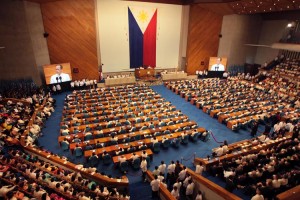Philippine News
Solon seeks to institutionalize ALS program to make education accessible to marginalized sectors
MANILA — People who missed elementary or secondary education because of poverty or disabilities need not lose hope of earning their school diplomas.
A lawmaker is proposing to institutionalize the alternative learning system (ALS) to make education accessible to the marginalized sectors of society.
Rep. Sherwin T. Gatchalian (1st District, Valenzuela City) filed House Bill 4360, otherwise known as the “Alternative Learning System (ALS) Act”, which seeks to promote non-formal education in the most convenient way by bringing the ALS Program to every barangay.
ALS, as defined under the bill, refers to the system of education, which provides a parallel learning system of a viable alternative to the existing formal education.
It includes the non-formal, informal and indigenous learning systems as sources of knowledge and skills.
The measure aims to provide adequate attention to the learning needs of adult citizens, out-of-school youth, members of cultural minorities, indigenous people as well as persons with disabilities, improve access to education and raise the level of literacy to contribute to an individual’s sustainable future.
Another objective of the ALS Act is to provide the opportunity for a flexible education program outside of the formal school system as well as provide accessible training and education services to every barangay, including those unreached, underserved and conflict-affected areas or communities.
Likewise, the bill seeks to provide a Mobile Teacher Program especially for persons with disabilities taking into consideration their functional ability or difficulty to obtain instructional materials and be apprised of the learning modules in the program.
The Gatchalian proposal directs the Department of Education (DepEd) through the Bureau of Alternative Learning System (BALS) to provide the appropriate curriculum assimilating culture and gender-sensitive formulations, training of teachers and coordinators, and the mechanism to implement the program in every barangay in the country.
Any donation, contribution, bequest, grant, in cash or services, whether local or foreign, which may be made by individuals and organizations, including private entities to provide the appropriate services, materials, and delivery support services for the promotion of the ALS education program in the barangays, shall be exempt from donor’s tax.
“And the same shall be considered as an allowable deduction from the gross income in the computation of the income tax of the donor in accordance with the provisions of the National Internal Bureau Code of 1997,” Gatchalian said.






















